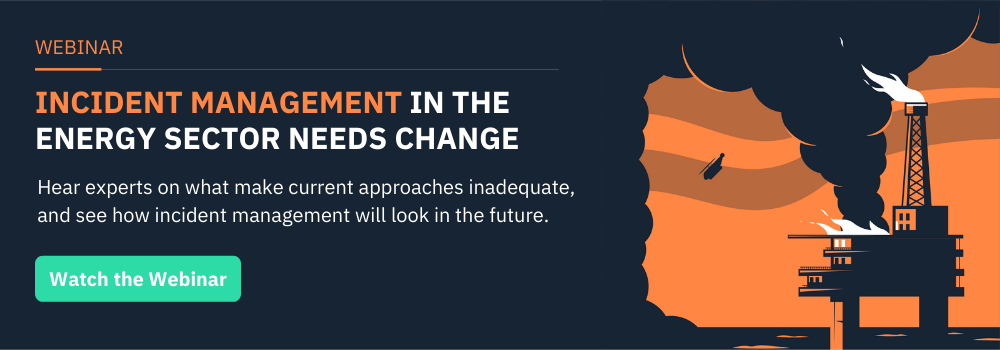Opinion Article
By Craig Menzies, Head of Emergency, Crisis and Continuity Preparedness at Restrata
As the fight against COVID-19 continues, we are confronted with a number of new viruses which cause COVID. In the UK we have B.1.1.7, in South Africa we have B.1.351 and in Brazil we have P.1. Initial research suggests that these variants seem to spread more easily and quickly than others, just as some countries were beginning to look at the future with increased optimism.
What is clear is that COVID-19 will be with us for some time, and it is therefore vital that critical industries, such as offshore energy continue to protect their workforce in order to continue to deliver operations in an evolving global situation.
For these companies, the ramifications of an outbreak of COVID-19 are potentially of huge significance, from an employee welfare, operational delivery and, ultimately, a financial standpoint. Any such outbreak can reduce staffing on an asset to a point where it affects production targets and have significant implications on costs, not to mention the broader loss of confidence amongst the workforce in their company’s ability to manage staff well-being effectively.
We have now seen the damaging impact that COVID-19 can have on offshore assets, which lack the technology to monitor workplace safety. It was only in late January that a COVID outbreak on a North Sea asset brought production to a halt, and in the same month, we witnessed similar outbreaks on at least two other North Sea assets.
With hindsight and a willingness to engage with clients to reduce the impact of similar incidents, Restrata are confident that the effects of these events could have been reduced if appropriate and effective technology had been available to assist in the safe management of these events.
It is widely accepted that measures such as pre-deployment testing of workers and the resultant early detection of COVID can reduce the likelihood of a breakout, but due to the nature of the virus and its incubation period, these steps, when used in isolation, cannot remove the risk entirely. Any failure to deal with the source [of COVID-19] and any close contacts can swiftly lead to further contamination and an increased spread of the virus across a site, leaving a company trying to control and manage the aftermath for weeks to come. Despite these efforts, the result may still be loss of staff to a safety-critical level and the requirement of a complete shut down and deep clean.
For these reasons, when dealing with an outbreak, it is essential to understand the detailed movements and interactions of all staff in order to minimise or stop the spread of COVID-19 around the site or asset and thereby manage its impact in an informed, efficient, and effective manner. This can be extremely challenging and, at best, have limited accuracy when relying on an individual’s ability to accurately recall who they have had contact with, where and for how long. This is where technology can play a crucial role.
For any offshore energy company seeking to prioritise employee safety in a COVID world, the speed by which accurate and reliable information is obtained is key in order to obtain early situational awareness, which then allows for informed decision making and effective management of the situation. Fast and effective control measures can prevent an incident becoming a crisis with may lead to greater impact on the site and wider business, especially the workforce who must always remain the first priority of any organisation. It is by safeguarding our people that we can protect ongoing operations whilst simultaneously maintaining the confidence and trust of all staff.
This is why Restrata’s rollout this week of its COVID-Safe technology for the offshore industry is of immense significance.
Whilst our cutting-edge Restrata Platform has already been widely used by international sport, including the England v West Indies test match cricket series last summer, the relocated Indian Premier League (IPL) 2020 in the UAE and other business such as Genel Energy as a strategy to reduce the negative impact of COVID-19, Restrata can now offer our enhanced cutting-edge technology to the offshore industry. This is due to the recent addition of an ATEX approved BLE wearable tag, which allows its combined use with the Restrata Platform + COVID-Safe Solution in offshore environments.
By deploying our technology [the Restrata Platform + COVID-Safe Solution], companies across offshore sites now have the ability to safeguard the health and well-being of their workers by minimising the occurrence and scale of COVID-19 infections, thereby helping to protect production whilst reducing the cost of managing operations during the global pandemic. The technology offers multiple benefits to companies operating in critical services, not least: social distancing; instant contact tracing; access restrictions; communications; symptom screening; and creating capacity limits.
By embracing and utilising technology within their COVID-19 safety strategy, offshore energy companies have the business-critical ability to manage all social distancing data across sites in real time as opposed to being entirely reliant on staff reporting. Our technology means that offshore energy companies do not have to isolate entire sections of their workforce and can accurately and reliably identify those directly affected. This, in turn, can reduce the requirement for costly helicopter flights to transport workers offsite, and vastly increases their ability to access reliable data in relation to the track and trace process. With technology such as the Restrata Platform, these burdensome, time-consuming and operationally stifling procedures can be alleviated, allowing the company to continue operations efficiently, save significant costs and maintain the confidence of their workforce.
We have developed our technologies to the point where they can make a real difference to organisations to the benefit of staff and businesses. Safety is our business – we keep businesses’ key assets, their people, safe in these challenging times.


